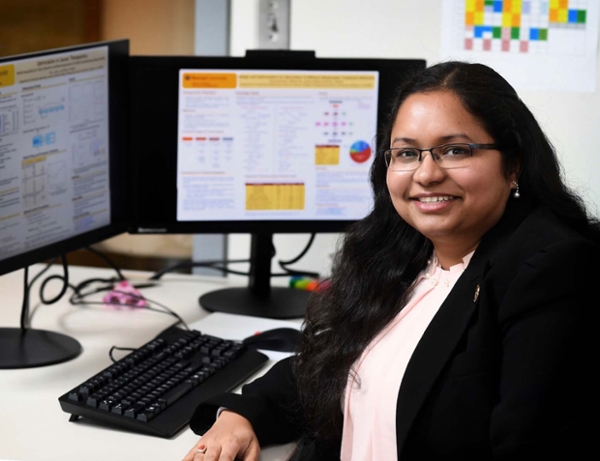NSF CAREER Award: Improving process synthesis and design of wastewater treatment systems
NSF CAREER Award: Improving process synthesis and design of wastewater treatment systems

Much of Kirti Yenkie’s research aims to help reduce trial and error in design and decisions related to environmental sustainability. Yenkie, Ph.D., an associate professor in the Henry M. Rowan College of Engineering’s Department of Chemical Engineering, has received funding to improve process synthesis and design of complex systems such as wastewater treatment systems. These improved processes will be cost-effective, environmentally friendly and robust, meaning these systems can withstand effects from extreme weather events, for example.
Yenkie will complete the work over five years with $505,676 in funding from the National Science Foundation’s Faculty Early Career Development Program (CAREER) Award, a prestigious honor for early career faculty. Faculty honored with the award are recognized for their potential as outstanding leaders in their field of research.
Using mathematical concepts from graph theory, Yenkie and her team will identify a ranked list of possible designs for a wastewater treatment plant. Then, machine learning algorithms will be employed to inform these possible designs and make them more resilient. The goal is to predict when certain pieces of aging infrastructure or technologies might fail or if extreme weather could disrupt the plant operations.
“Machine learning will tell us, based on the historical data, what is the probability of something failing in the near future, and then you can take a proactive approach to plant maintenance,” Yenkie said. “Any process network or design that has been predicted from graph theory— incorporating information from machine learning models—will make them more long-lasting or resilient.”
Yenkie’s team will include graduate students and undergraduate students through the college’s engineering clinic courses.
Ultimately, Yenkie expects this methodology will lead to creative, cost-effective and greener solutions for designing new wastewater treatment facilities or retrofitting existing facilities. This approach could also be extended to other complex systems such as plastics recycling or solvent recovery.
Yenkie, along with colleagues from the Department of Experiential Engineering Education (ExEEd), will also develop educational materials regarding process separations and process design.
“These materials will show how to actually use some of the chemical engineering fundamentals in solving real-world problems,” Yenkie said.